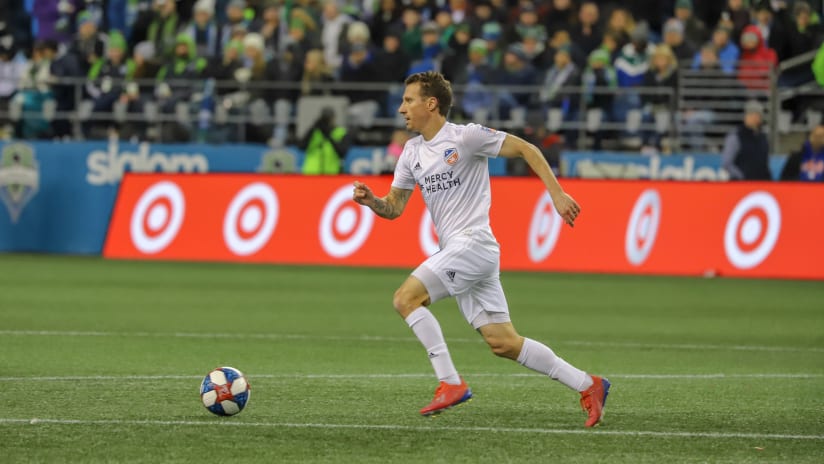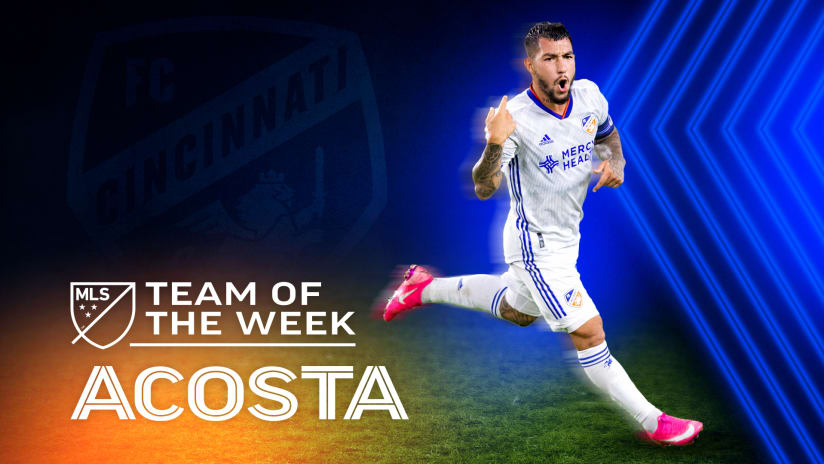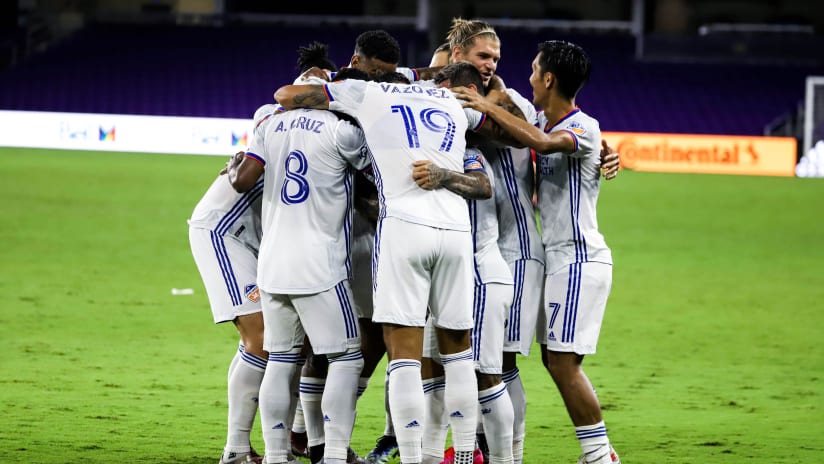Corben Bone stared silently at his laptop as frenzy swirled around him.
Kickoff was imminent, and people were preparing for the home finale. For Bone, who’s nursing a hip injury, his preparation usually includes joining teammates in the locker room. Not this particular Sunday, however.
Instead, the central midfielder quietly sat with his head lowered and continued doing the last thing anyone else in the stadium was thinking about: homework.
While journalists waited around in the press box for Sunday’s game to start, Bone sat alone four rooms away and did schoolwork for his journalism class.
After initially studying at Wake Forest University, he’s currently taking his last class from the University of Cincinnati to earn a bachelor’s degree.
“It’s been a long process,” Bone said. “It’s hard to come back to school once you become a professional athlete. So, when they give you the opportunity to do that, then you should probably choose it. It’s beneficial, and you never know how it could help you in the future.”
When Bone enrolled at Wake Forest in 2007, the goal was to earn a degree. But when an opportunity to play professionally opened up after the fall semester of his junior year, the midfielder who dreamed of becoming a pro soccer player, seized his opportunity.
That also meant leaving school early.
“Growing up, that was always the goal to go to college and get a scholarship to play soccer,” he said. “So, you do that, but then you make the decision to leave early. You still want to fulfill that dream for yourself and for your mom.”
And that’s what Bone’s done – gradually.
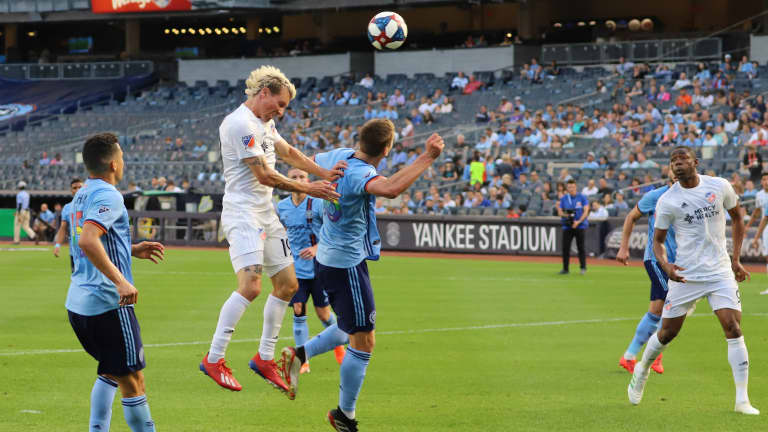
Wherever he’s traveled as a professional, he’s taken classes at a local university, too.
When he played for the Chicago Fire, classes were at DePaul University. Time with the Wilmington Hammerheads meant time at the University of North Carolina-Wilmington. Along the way, he also took classes online through Wake Forest. Now, he’s taking an in-person class at UC, which means FCC practice in the morning and class later that day.
Because he’s a professional athlete, and that means matches across the country on school nights, he said professors have been helpful and understanding.
“It’s been an interesting academic career,” Bone said. “It’s moving from Wake Forest, where I did most of my schooling and taking a class at UC, where I was in an auditorium with like 500 students, compared to a class of 10 at Wake Forest. It’s just been a melting pot of experiences, and that’s been challenging, but fun.”
At 31 years old, he knows his soccer career is closer to ending than beginning. No, that doesn’t mean retirement is coming soon.
But Bone said he’s at a point now where he’s thinking of life beyond the field, and his current post-playing plans would revolve around creative storytelling in one form or another.
“That’s just an opportunity to see what it’s like outside of soccer,” he said.
The center midfielder isn’t the only Orange and Blue player enrolled in classes.
As more American players follow the global trend of a professional career – playing in a youth academy and earning a pro contract as a teenager – that’s meant less emphasis on a college education, whether it’s completing a degree or even enrolling in college classes entirely.
It’s a logical move. Becoming a professional player at a younger age means more time to develop in the profession while getting paid sooner, too.
For example, goalkeeper Ben Lundt just turned 24 last week and is finishing up his rookie year. Before 2019, he studied at the University of Akron. Meanwhile, Ricardo Pepi is a 16-year-old on FC Dallas who played against FC Cincinnati back in August. Both are in their first season as a professional. Thus, starting younger makes more sense for a longer soccer career.
Doing so has an obvious consequence, though: not getting a college education.
To combat this, MLS and Southern New Hampshire University partnered to help players and staff members earn degrees through online classes that work around a demanding schedule. Preseason starts in January and the postseason ends in mid-November.
Currently, two FC Cincinnati players, Victor Ulloa and Caleb Stanko, are taking online classes and are benefiting from an online education. Jimmy McLaughlin plans to begin classes soon. This is in addition to Bone, who’s taking his final class in person.
All have unique circumstances, but together show how beneficial it is for players to start playing professionally younger while still earning a coveted university degree.
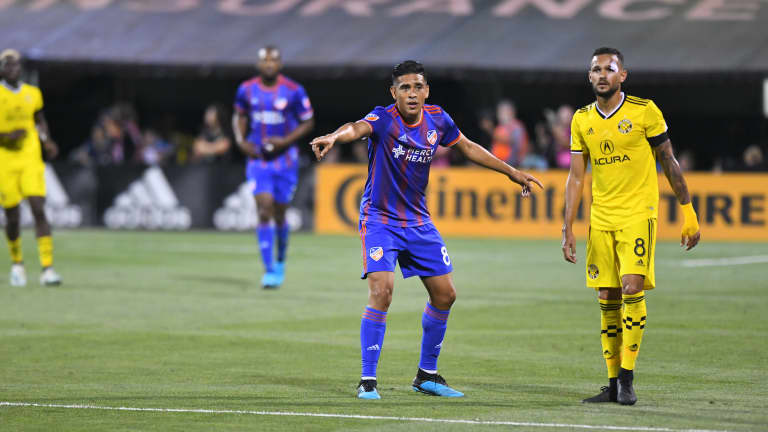
Victor Ulloa
Ulloa is a classic case of an MLS academy product – and a pioneer for a player like Pepi.
One of the inaugural players in the FC Dallas Academy, he became one of Dallas’ first MLS Homegrown signings. While that meant being a professional player at 18, that also meant he couldn’t stay in school.
“College and school are very important to my family, especially with my parents,” Ulloa said. “They always instilled in me. My brother and my sister to go to college to get our degrees. My brother just recently graduated, so he beat me to the punch, but it’s one goal that I have.”
The center midfielder began taking classes in 2013. During the season, he takes one class every eight weeks. In the offseason, the workload doubles.
During a typical game week, Ulloa said he tries to finish school work by Wednesday, sometimes Thursday, so he can completely prepare for a game. He’s majoring in sports management.
“I want to be involved in the sports business side of things in any way I can,” Ulloa said. “Ever since the beginning, I’ve chosen the major and I’ve had my program built. Slowly, but surely, I’m getting there.”
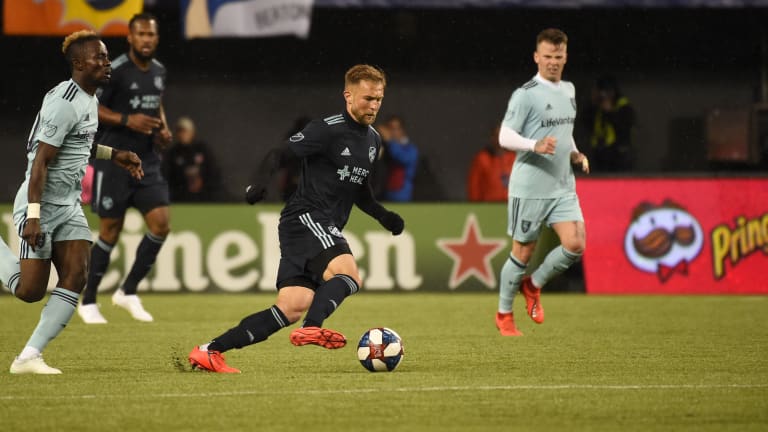
Caleb Stanko
Stanko’s path winded differently.
After high school, he had two major choices. One was a scholarship to play soccer at the University of Michigan; the other was a professional career in Germany. He chose to Europe.
But since 2012, even as he was in Germany, he’s taken online classes on and off at Liberty University. At times, that meant being a full-time student. Sometimes it was strictly soccer. Now, he has 13 classes left before he completes his undergraduate degree in business finance.
“If I was going to school and that was all I was doing and not playing soccer, I’d want to be in the medical field,” Stanko said. “But given where I am in life and where I’ve been in life, I want to do something with business. I really like it and there are a lot of avenues I can go down with a business degree.”
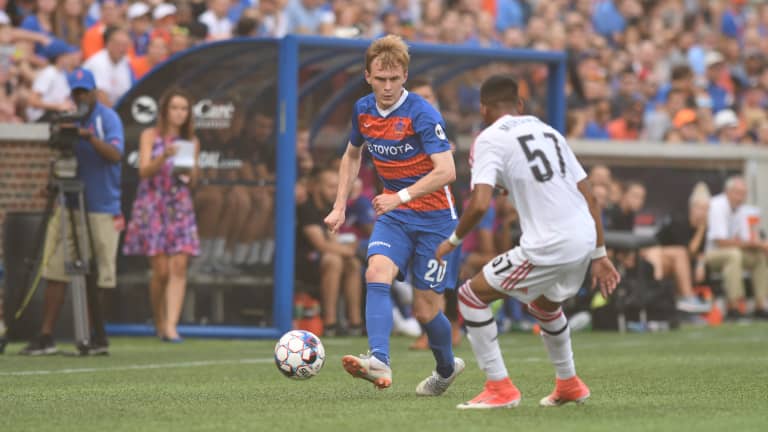
Jimmy McLaughlin
For McLaughlin, he wants to go back to school soon.
Back in 2011, McLaughlin was a freshman at Colgate University, where he was playing soccer. He was also too good to be playing there.
By the end of his freshman season, he was the only freshman on the team to start 22 games and was named the 2011 Patriot League Rookie of the Year.
Naturally, that attracted attention, and by Christmas time he’d already signed an MLS Homegrown contract with the Philadelphia Union.
Technically, that makes him a college dropout, but he’s thinking about re-enrolling in college. While he’s undecided on a major (“I want to knock out general classes and see what I’m interested in and enjoy”), he said he’s grateful for an opportunity to pursue a college degree.
“This is such an amazing situation they have with Southern New Hampshire University to give players an affordable way to continue their education while they’re playing,” McLaughlin said. “Playing soccer is something really important to all of us, and for me personally, I had to leave school early to play professionally. It’s always been a goal of mine to finish that, and if I can do that while I’m playing soccer, that would be the ideal scenario.”
MLS and SNHU partnered in 2015 with a three-year deal. In 2018, that partnership extended another three years. While it’s not something every player is interested in or feels necessary, it’s an opportunity to highlight the importance of a college education for people who never pursued it early in their career.
Of course, players bypassing college to play professionally quicker provides more playing opportunities, but the SHNU partnership allows players who choose that avenue an opportunity to still earn a college degree – without missing an FC Cincinnati match.

